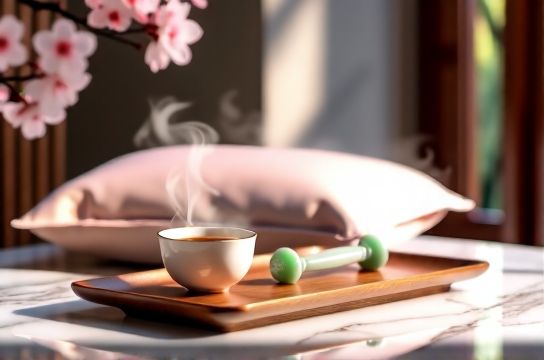How to Upgrade Your Lifestyle with Authentic Chinese Goods
- 时间:
- 浏览:56
- 来源:OrientDeck
Let’s be real — when you think of upgrading your lifestyle, you probably imagine French perfumes, Italian leather, or maybe Scandinavian minimalism. But what if the next big thing in self-care, style, and smart living isn’t from Europe at all? Spoiler: it’s from China, and we’re not talking knockoffs. We’re talking about authentic Chinese goods that blend ancient wisdom with modern innovation.

Why Go Authentic?
China isn’t just the world’s factory — it’s a treasure chest of heritage products that have stood the test of time. From traditional herbal remedies to handcrafted ceramics, these aren’t just items; they’re experiences rooted in thousands of years of culture.
Take ginseng, for example. According to Statista, the global ginseng market hit over $3.5 billion in 2023, with South Korea and China leading production. But Chinese ginseng, especially from Jilin Province, is prized for its higher saponin content — the active compound linked to energy and immunity.
Top 5 Authentic Chinese Goods Worth Trying
Not sure where to start? Here’s a curated list of real-deal products that actually deliver:
| Product | Origin | Key Benefit | Avg. Price (USD) |
|---|---|---|---|
| Puerh Tea | Yunnan Province | Supports digestion & metabolism | $25–$80 |
| Jade Massage Rollers | Xinjiang | Reduces puffiness, boosts glow | $30–$120 |
| Silk Pillowcases (Grade 6A) | Suzhou | Less friction = fewer wrinkles & hair breakage | $40–$90 |
| Herbal Foot Patches | Guangdong | Natural detox while you sleep | $15–$25 (30-pack) |
| Cloisonné Vases | Beijing | Luxury decor, hand-enameled | $100–$500+ |
These aren’t just trendy TikTok finds — they’re backed by tradition and increasingly by science. For instance, a 2022 study in the Journal of Ethnopharmacology found that regular consumption of fermented Puerh tea can reduce LDL cholesterol by up to 15% over 12 weeks.
How to Spot the Real Deal
Here’s the catch: with great demand comes… fakes. Alibaba and Amazon are flooded with “Chinese” products that are mass-produced, low-grade imitations. So how do you avoid the trap?
- Check the source: Look for suppliers from known regions (e.g., Suzhou silk, Yunnan tea).
- Read certifications: Organic, GACP (Good Agricultural Collection Practice), or FSC labels matter.
- Buy from specialty stores: Sites like PurpleCultural, Mei Leaf, or ChinaFetching.com focus on authenticity.
Small Swaps, Big Impact
You don’t need to overhaul your life. Start small: Replace your cotton pillowcase with a 6A mulberry silk one — your skin and hair will thank you. Swap your afternoon coffee for a cup of aged Puerh — smoother energy, no jitters. Use a jade roller for two minutes post-cleansing — instant facial lift vibes.
These aren’t just upgrades — they’re rituals. And in a world of fast fashion and quick fixes, that kind of mindful luxury? That’s the real flex.
So go ahead. Skip the mall. Dive into the real China — where tradition meets transformation, one authentic product at a time.